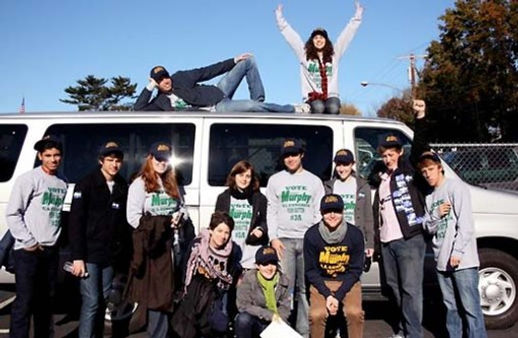Funding a Campaign
- Kiev son
- Sep 27, 2012
- 2 min read
Posted by: Janine Balekdjian, Consular Intern
To win an election, candidates need to convince the voting public to agree with their policy proposals, and to do that, they need to spread their message as widely as possible. One way they do this is through televised debates and speeches and other media coverage, but they also use their own resources to craft their message to voters through advertising and field work. Campaigns take out advertisements on the internet and television, in the print press, and on billboards (and other public signs) to highlight their strengths or their opponent’s weaknesses on particular issues, and they also employ field staff to call voters and canvass door-to-door. The bill for advertising and staff can be expensive, especially for presidential campaigns which need infrastructure in all 50 states, and that’s where fundraising and campaign finance come in.
Campaigns acquire funds by soliciting donations from supporters through email, mail, or fundraising events (“fundraisers”). In order to avoid the appearance of corruption, federal law sets the maximum donation to a candidate per election at $2,500. However, direct campaign donations are far from the only way that someone can give money to be spent in an election. The Democratic and Republican Parties both have committees on the local, state, and national level that have maximum donation levels which are significantly higher than those to individual candidates. These committees allocate the donations they get to the races they think are the greatest priority; for example, where a high-profile challenger has a good chance of taking a seat currently held by the other party, or where an important incumbent is threatened. In addition to the campaigns themselves and party committees, there are also political action committees, or PACs, which are formed of members dedicated to a particular cause or set of causes. Because PACs donate to individual candidates, the maximum an individual may give to a PAC is $5,000. All these regulations are overseen by the Federal Election Commission, which is in charge of assuring that all campaigns abide by the law.
Campaign finance in the United States became even more complicated after the Supreme Court decision Citizens United v. Federal Election Commission, 558 U.S. 310 (2010). In that ruling, the Supreme Court reversed several decades’ worth of campaign finance laws and declared that spending money is considered free speech under the First Amendment. Existing laws on direct donations to campaigns and party committees stand, but because of Citizens United, any individual or corporation can donate unlimited amounts of money to “SuperPACs”. SuperPACs are similar to regular PACs, but they are legally required not to coordinate with any campaign and instead put out their own ads for or against candidates. However, candidates and SuperPACs can get around this limitation by discussing strategy through the media, which American comedians Jon Stewart and Stephen Colbert have demonstrated to great comedic effect. Additionally, SuperPACs can be heavily funded by one donor or company, but are not required to disclose their main funding sources in their ads. The D.I.S.C.L.O.S.E. Act, legislation which would require such disclosure, has stalled in Congress.
In order to free candidates from the political pressures of being beholden to large donors, a few states offer public financing of campaigns. To qualify for public financing, candidates must raise a certain number of small contributions to prove their viability, and are then given access to a fixed amount of public money to use on their campaign. Candidates who opt in to public financing are not allowed to raise any more donations or to use their personal money on their campaigns. Connecticut, Maine, and Arizona currently have optional public financing, although part of Arizona’s public financing law was struck down by the Supreme Court in 2011. Public financing is also available for presidential campaigns, but President Obama and Mitt Romney have both rejected public funds in the 2012 election.





Comments